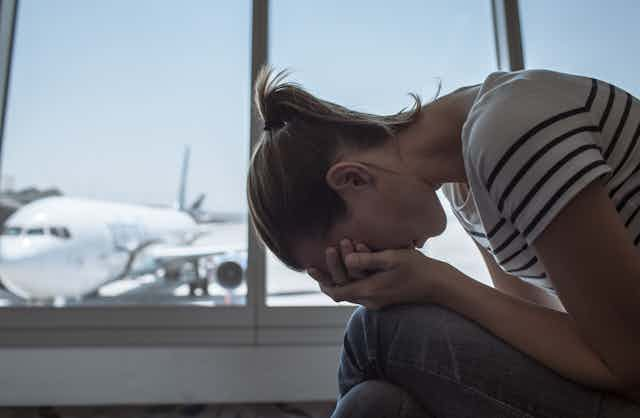Abortion travel isn’t new. People have been crossing national and state borders to get abortion care since the 1960s, when air travel became more common and affordable.
The number of people who need to travel and the distances they must travel for care will increase following the U.S. Supreme Court’s ruling in Dobbs v. Jackson Women’s Health Organization, which overturned Roe v. Wade.
As a sociologist who studies gender, reproduction and health, I have interviewed hundreds of women who have sought abortions, many of whom had to travel for care. My recent study on the experiences of people who had to travel across state lines for abortion care can help people better understand what costs abortion patients face when they have to travel.
1. Why do people travel for abortion care?
People travel for medical care for many reasons. In the case of abortion travel, they are typically traveling because abortion is either legally restricted or unavailable in their home area. To get an abortion, they have no choice but to travel.
As of late August 2022, about half of the states in the U.S. have already restricted or are expected to heavily restrict abortion. Abortion seekers in those states may opt to travel to another state where abortion remains legal, as many Texans did following the implementation of their state’s highly restrictive law in 2021.
2. What are the main costs of traveling for abortion care?
Most people rightly anticipate that abortion travel entails expenses like gas money or plane tickets and hotel charges. As research shows that most abortion patients are at or just above the federal poverty line, it is easy to see that these costs alone could represent a substantial burden.
But traveling for an abortion often also includes numerous other costs. For instance, most abortion patients are already parenting children, so they must figure out child care logistics when they have to travel for abortion care. People who do not have access to a reliable vehicle may need to rent a car to make a long-distance drive across state borders.
Abortion funds – nonprofit organizations that provide practical and financial support to people seeking abortion care – can help people who are financially struggling navigate some of these costs. But often this aid isn’t sufficient to cover all costs. There are also real questions about whether funds can meet the growing demand.
And then there is the issue of lost wages during the time a patient must spend traveling. For many people engaged in hourly work, when you don’t work, you don’t get paid.
Abortion travel can also entail emotional costs. I’m currently working on a new study based on interviews with 30 women from around the U.S. about the emotional impacts of having to travel out of state for abortion care. Based on these interviews, I’ve learned that having to travel for abortion care can mean the stress of having to navigate a new place. For some people, this could be their first time in that city or even away from home. It also means being removed from their usual support systems and the physical and emotional comforts of home. This, too, can take an emotional toll.
And, of course, having to travel means having to explain to others – including co-workers and family members – why they are traveling, which can also come at a high personal and emotional cost.
3. Are there any positives to traveling for abortion care?
There is not much work on this question to date. Most research on abortion travel has focused on its negative aspects. But in my research, some of the women who had to travel for abortion care talked about how much they appreciated the emotional support they received in their destination clinic – especially after the hostility to abortion they had experienced in their home communities.
Seeking out nonjudgmental, compassionate care might motivate someone to prefer to travel for abortion care. But in the post-Roe landscape, few will have that luxury. Rather, travel will be a necessity, not a choice. Even with the possibility of emotional benefits, travel for abortion care exacts clear and substantial costs.

